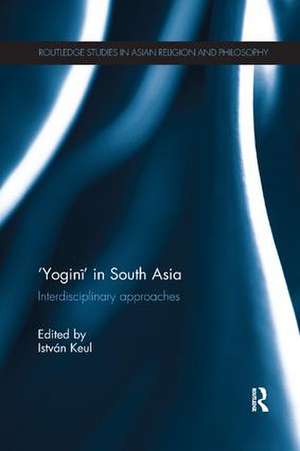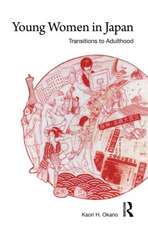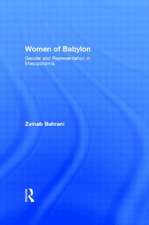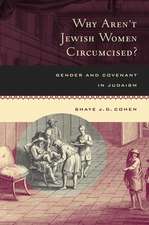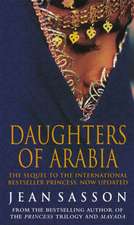'Yogini' in South Asia: Interdisciplinary Approaches: Routledge Studies in Asian Religion and Philosophy
Editat de István Keulen Limba Engleză Paperback – 12 oct 2017
The book discusses the medieval yoginī cult, as illustrated in early Śaiva tantric texts, and their representations in South Asian temple iconography. It looks at the roles and hypostases of yoginīs in contemporary religious traditions, as well as the transformations of yoginī-related ritual practices. In addition, this book systematizes the multiple meanings, and proposes definitions of the concept and models for integrating the semantic fields of ‘yoginī.’
Highlighting the importance of research from complementary disciplines for the exploration of complex themes in South Asian studies, this book is of interest to scholars of South Asian Studies and Religious Studies.
| Toate formatele și edițiile | Preț | Express |
|---|---|---|
| Paperback (1) | 299.52 lei 43-57 zile | |
| Taylor & Francis – 12 oct 2017 | 299.52 lei 43-57 zile | |
| Hardback (1) | 848.55 lei 43-57 zile | |
| Taylor & Francis – 5 iul 2013 | 848.55 lei 43-57 zile |
Din seria Routledge Studies in Asian Religion and Philosophy
-
 Preț: 377.87 lei
Preț: 377.87 lei -
 Preț: 341.18 lei
Preț: 341.18 lei -
 Preț: 389.66 lei
Preț: 389.66 lei -
 Preț: 385.41 lei
Preț: 385.41 lei -
 Preț: 436.14 lei
Preț: 436.14 lei -
 Preț: 416.22 lei
Preț: 416.22 lei -
 Preț: 385.84 lei
Preț: 385.84 lei -
 Preț: 383.63 lei
Preț: 383.63 lei -
 Preț: 481.05 lei
Preț: 481.05 lei -
 Preț: 436.14 lei
Preț: 436.14 lei -
 Preț: 428.85 lei
Preț: 428.85 lei -
 Preț: 389.38 lei
Preț: 389.38 lei - 26%
 Preț: 819.67 lei
Preț: 819.67 lei -
 Preț: 384.86 lei
Preț: 384.86 lei - 18%
 Preț: 1000.27 lei
Preț: 1000.27 lei -
 Preț: 400.77 lei
Preț: 400.77 lei - 18%
 Preț: 1005.04 lei
Preț: 1005.04 lei - 14%
 Preț: 338.33 lei
Preț: 338.33 lei - 14%
 Preț: 299.52 lei
Preț: 299.52 lei -
 Preț: 413.18 lei
Preț: 413.18 lei - 48%
 Preț: 571.48 lei
Preț: 571.48 lei - 16%
 Preț: 272.83 lei
Preț: 272.83 lei -
 Preț: 389.38 lei
Preț: 389.38 lei -
 Preț: 411.04 lei
Preț: 411.04 lei - 18%
 Preț: 1057.09 lei
Preț: 1057.09 lei - 18%
 Preț: 1000.27 lei
Preț: 1000.27 lei - 13%
 Preț: 310.28 lei
Preț: 310.28 lei - 18%
 Preț: 1001.55 lei
Preț: 1001.55 lei - 18%
 Preț: 1000.27 lei
Preț: 1000.27 lei
Preț: 299.52 lei
Preț vechi: 349.09 lei
-14% Nou
Puncte Express: 449
Preț estimativ în valută:
57.31€ • 59.100$ • 47.42£
57.31€ • 59.100$ • 47.42£
Carte tipărită la comandă
Livrare economică 07-21 aprilie
Preluare comenzi: 021 569.72.76
Specificații
ISBN-13: 9781138575486
ISBN-10: 1138575488
Pagini: 256
Ilustrații: 40
Dimensiuni: 156 x 234 mm
Greutate: 0.45 kg
Ediția:1
Editura: Taylor & Francis
Colecția Routledge
Seria Routledge Studies in Asian Religion and Philosophy
Locul publicării:Oxford, United Kingdom
ISBN-10: 1138575488
Pagini: 256
Ilustrații: 40
Dimensiuni: 156 x 234 mm
Greutate: 0.45 kg
Ediția:1
Editura: Taylor & Francis
Colecția Routledge
Seria Routledge Studies in Asian Religion and Philosophy
Locul publicării:Oxford, United Kingdom
Public țintă
PostgraduateCuprins
1. Introduction: Tracing Yoginīs: Religious Polysemy in Cultural Contexts Part 1: ‘Yoginī’: Definitions and categories 2. What is a Yoginī? Towards a Polythetic Definition 3. The Category of the Yoginī as a Gendered Practitioner Part 2: History, cosmography, hagiography 4. The Abode of the Pañcamudrās: A Yoginī temple in Early Medieval Vārānasī 5. The Presence of Yoginīs in Madhya Pradesh: An Epigraphic Study 6. Cosmographic Buildings of India: The Circles of the Yoginīs 7. Relationships and Visions: The Yoginī as Deity and Human Female in Tantric Buddhism Part 3: Art history 8. Yoginīs in Stone: Auspicious and Inauspicious Power 9. The Goddess Hinghalāja of the Yoginī Shrine at Khajuraho 10. The Yoginīs of the Bayon Part 4: Ethnography 11. Yoginīs in Bengali Religious Traditions: Tribal, Tantric and Bhakti Influences 12. Alternative Yoginīs with Alternative Powers: Singing the Blues in the Causattī Yoginī Devī Mandir of Vārānasī 13. Invoking the Erotic Mother: The Outcaste Priestess and the Heroic Men Part 5: Possession, sexuality, dance 14. Yoginī Possession in Early Śaiva Tantras 15. Can Encounters with Yoginīs in the Jayadrathayāmala Be Described as Possession? 16. The Yoginī and the Tantric Sex Rite, or How to Keep a Secret 17. Performing Hirapur: Dancing the Śakti Rūpa Yoginī
Notă biografică
István Keul is Professor in the Study of Religions at the Norwegian University of Science and Technology, Norway. His main field of interest is South Asian religion, and he has previously published on the Hindu deity Hanuman.
Descriere
In different stages in the history of South Asian religions, the term yoginī has been used in various contexts to designate various things: a female adept of yoga, a female tantric practitioner, a sorceress, a woman dedicated to a deity, or a certain category of female deities. This book brings together recent interdisciplinary perspectives on the medieval South Asian cults of the Yoginis, such as textual-philological, historical, art historical, indological, anthropological, ritual and terminological.
